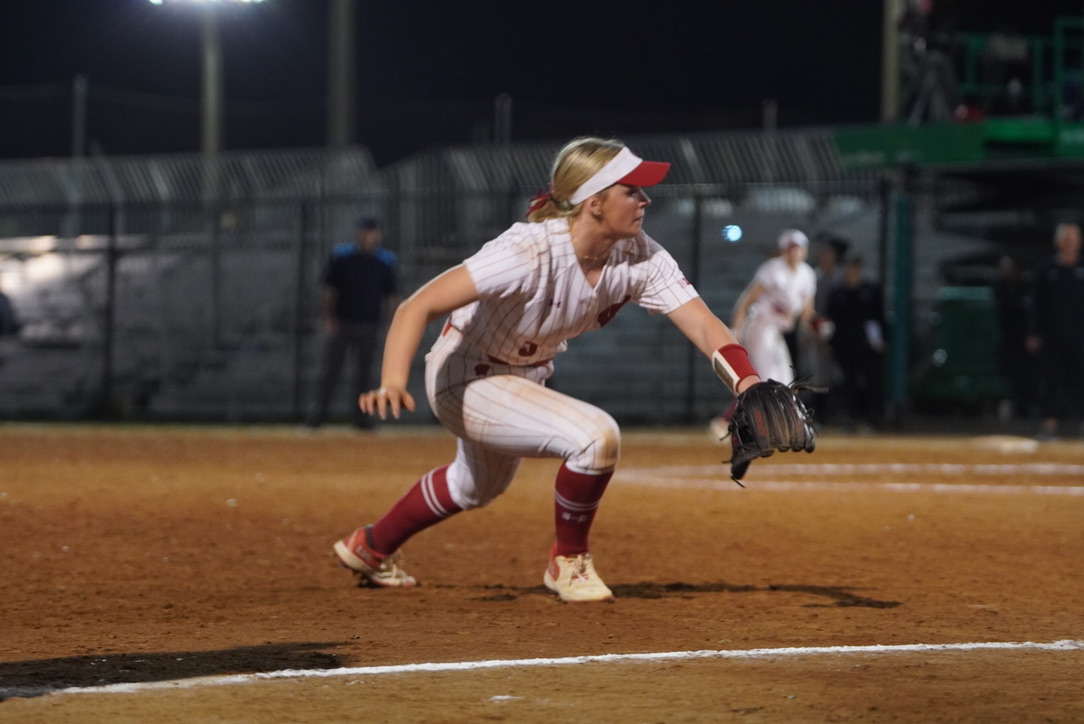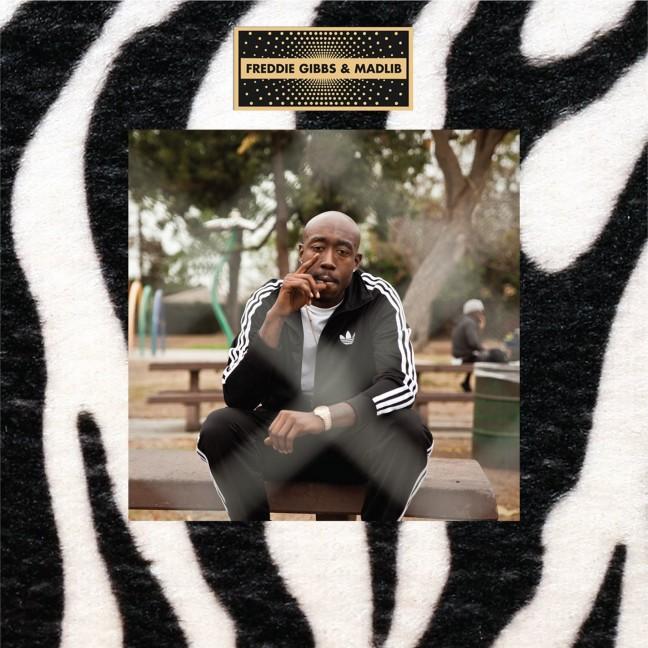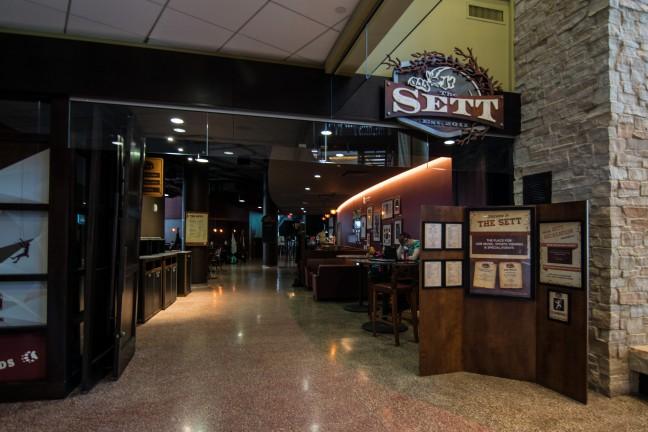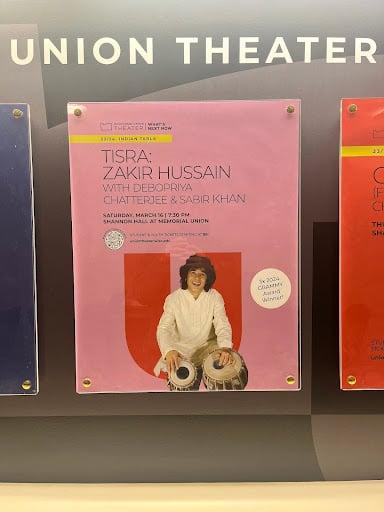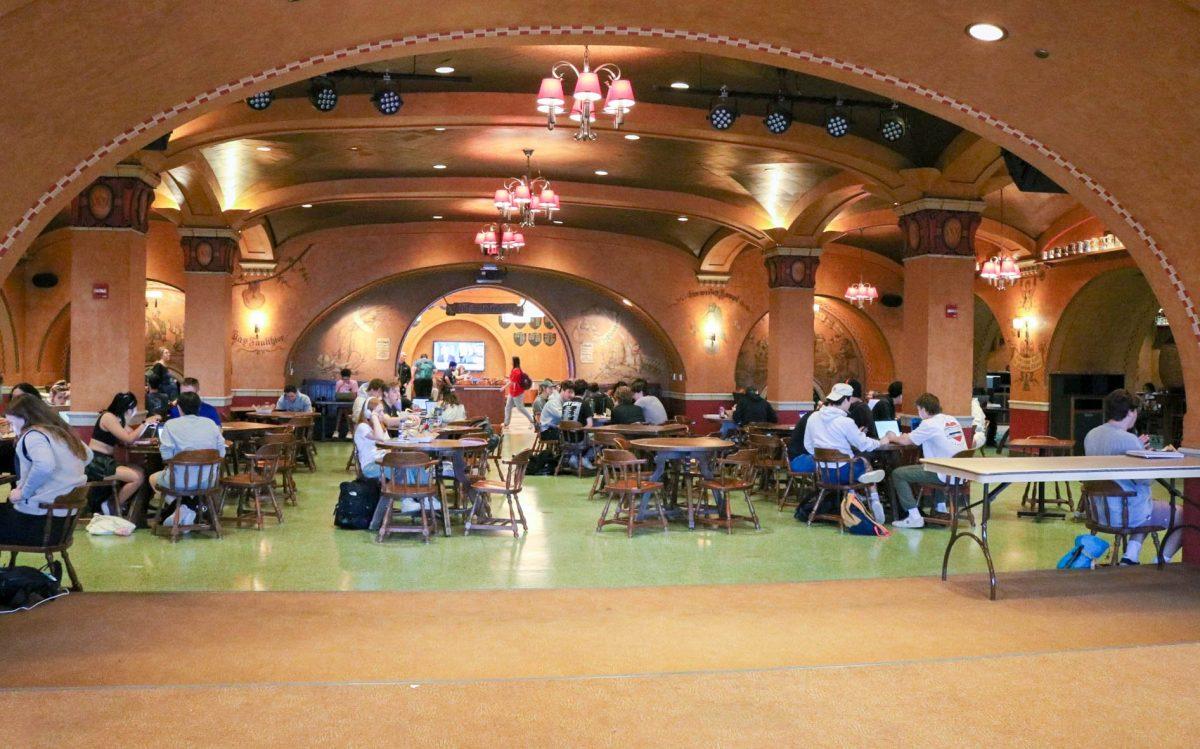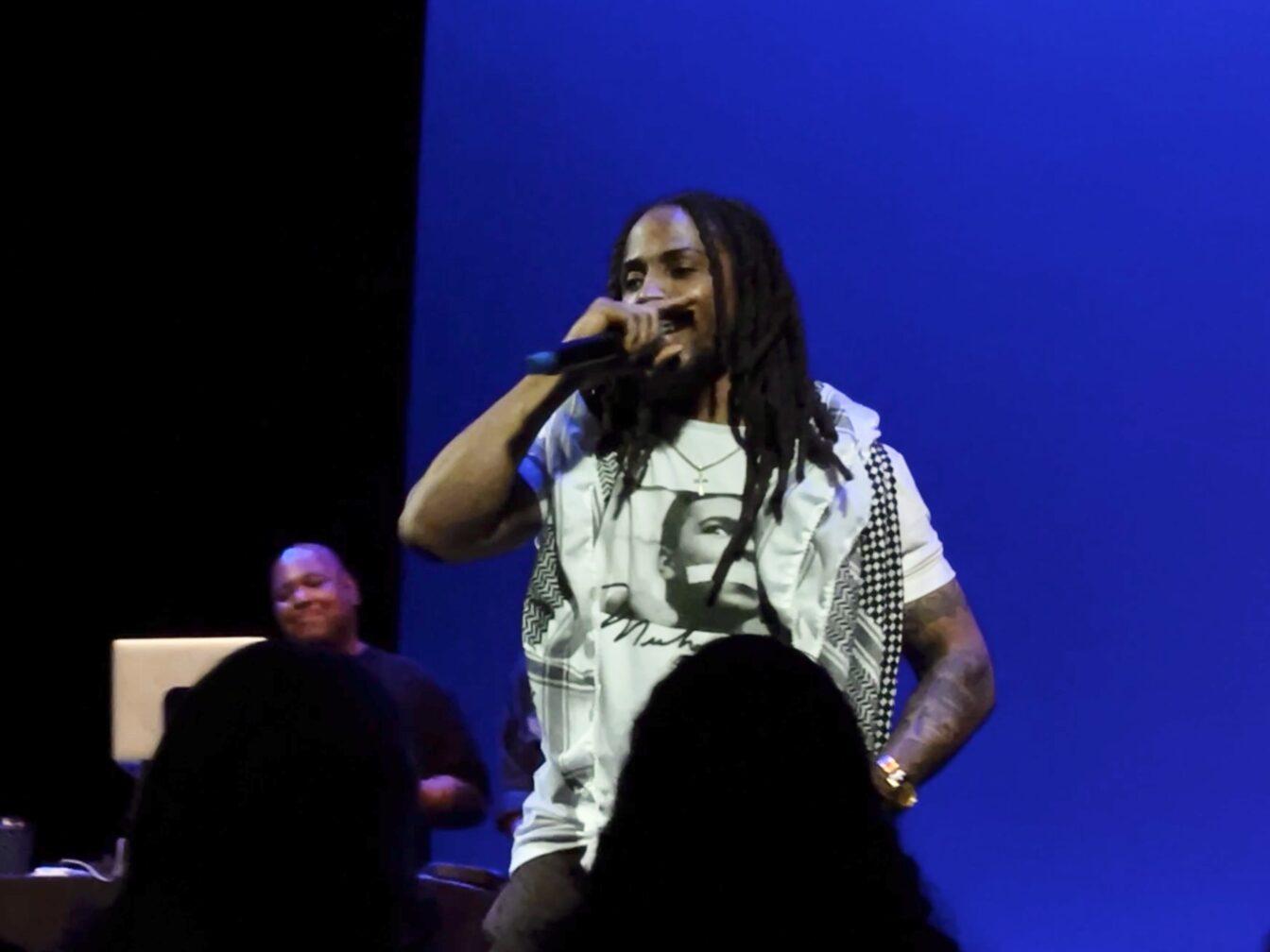At first glance, Freddie Gibbs and Madlib are two musicians that appear to go together about as well as peanut butter and cold salami. Gibbs is a rapper hailing from Gary, Ind., a place that most Americans only visit in their nightmares. It is where Gibbs spent most of his adult life, and still claims to be spending it currently selling schedule-one drugs, committing armed robberies and narrowly escaping police apprehension at every turn. These are all themes present in his music and he presents them in vivid detail.
Madlib, on the other hand, is a Los Angeles-based producer/rapper who specializes in creating obscure and complex beats for his collaborators, the likes of which include Talib Kweli and MF Doom, rappers who could not be more disconnected from the hardcore gangsterism that Gibbs represents. Madlib has also produced his own jazz album, and jazz can be found in many of his productions.
Starting in 2011, the two artists began collaborating and surprised the greater rap community by creating a unique and gripping five-track EP titled Thuggin’. No one was anticipating the project to be as successful and innovative as it actually was, except for Gibbs and Madlib. Banking on the success of this first effort, the two would spend the next three years creating the project Piñata.
Released on March 15, the 17-track album lasts over an hour and features an impressive set of guest features from the likes of Raekwon, Danny Brown, Ab-Soul, Earl Sweatshirt, Domo Genesis, Scarface, BJ the Chicago Kid, Casey Veggies and Mac Miller, among others.
In a press conference surrounding the announcement of Piñata, Gibbs described the project as being “a gangster Blaxploitation film on wax.” The album is a modern day musical take on the infamous films of the 1960s and 70s that featured black protagonists getting into fist fights, car chases and shootouts with people working for “The Man” or some fictional group that’s trying to “keep the people down.” But those afros, black power fists and slightly hokey undertones of the screen are traded in for ski masks, blunts and a hauntingly serious gangster motif for your headphones and car stereos. Madlib taps into this theme by producing beats that use horn, percussion and string instrumental arrangements characteristic of the era. He even goes so far as to insert samples from movies and shows of the era that act as brief and entertaining interludes between songs.
The album’s opener, “Supreme,” acts as an intro, featuring an infectious beat from a set of bongos. Madlib inserts audio samples of people talking about hustling and drugs, superb devices for foreshadowing one of the primary topics of the entire album.
The following track, “Scarface,” is a disappointingly brief song that epitomizes exactly what Freddie Gibbs is all about as both a gangster and a rapper: rhyming about drug dealing, robbery stints and murder, even detailing a shocking account of his “procedure” when he commits armed home invasions. Madlib gives Gibbs an obscure, inventive and uptempo beat, one that he delivers hard-hitting one-liners seldom found in any gangster rap made in the last decade. The tracks “Shitsville,” “Thuggin’” and “Uno” are similar in nature to this one.
On stand-out track “Harold’s,” Madlib creates a beat inspired by the old school soul recordings of Earth, Wind, and Fire and Frankie Beverly and Maze to incite the feeling of a carefree summer day. The track is supplemented by Gibbs’ nostalgic musings on his favorite fried chicken spot and is undoubtedly the most light-hearted track on the album.
The following track, “Bomb,” moves at a slightly slower pace than the preceding five. Gibbs offers tales of dope pedaling and gun play that merge well with the ominousness of the beat. Featured Wu-Tang legend Raekwon does not disappoint and delivers a verse characteristic of his “back alley crime” rap.
Track nine, titled “Real,” is something rarely found in the rap of this current generation: a blatant diss record. For two years, Gibbs was signed to rapper Young Jeezy’s record label CTE, and they released a number of records together. But eventually, Gibbs became unhappy with the way Jeezy was running things. So he left. Gibbs raps, “I thought the world was at my feet when I linked up with Snow [Jeezy] / But I refuse to be his flunkie, so we don’t kick it no mo’.” He details instances of Jeezy not being the person he says he and it makes for an interesting track.
The song “Broken” is a retrospective look at the past that leaves Gibbs seeming vulnerable and exposed. He paints a picture of his interactions with some of his elders when he was minor and discloses some honest truths about his former self. Madlib uses a sorrowful guitar lick to add the perfect feeling of sentimentality to the track and it’s one of the more powerful ones present on the album. Unfortunately, Scarface’s verse is decent but leaves more to be desired.
The final track, which is also the title track, features rappers Domo Genesis, G-Wiz, Casey Veggies, Sulaiman, Meechy Darko and Mac Miller. While it’s not a terrible track to go out on, it’s by no means a stellar song. Madlib provides a wonderfully dark and sinister beat for the rappers to play with, but only Domo Genesis, Gibbs and Casey Veggies seem to take full command of it, so it becomes an overall disappointment by the time it’s over.
It’s not a perfect album; the pacing at the end is slow due to the more laid-back and groovy beats that make up the final seven songs, causing this latter portion to feel drawn out. The project would benefit from having these final seven songs dispersed throughout the rest of album. It’s also a quintessential “gangster rap” album, so the primary topics of each song revolve around money, drugs, objectification of women, guns, robbery, violence and not much else outside of this sinful spectrum. You won’t find any conscious or uplifting subject matter here. The thuggish subject matter presented throughout can border on repetitive at times due to its prevalence in almost every track.
But at the same time, Gibbs’ skill and precision as a lyricist present the “street life” motif with such a refreshing quality that it can be easy to forget he’s talking about the exact same things as many other past and present rappers. This lyrical prowess, coupled with Madlib’s complicated and soulful-yet-obscure production, makes for a truly ambitious and unique listening experience, the likes of which will be hard to rival for quite some time. Piñata is a wildly entertaining listen and something that true fans of the genre should definitely check out. It turns out that peanut butter and salami may go surprisingly well together after all.
4 out of 5 stars




